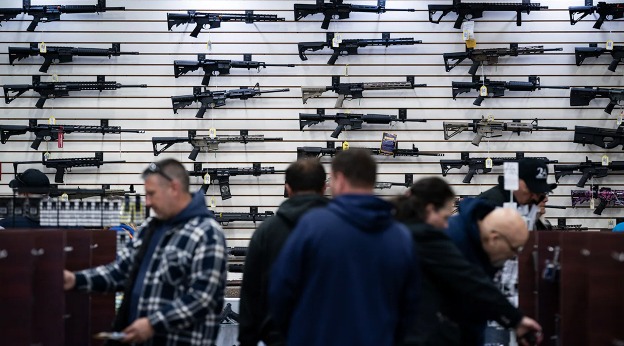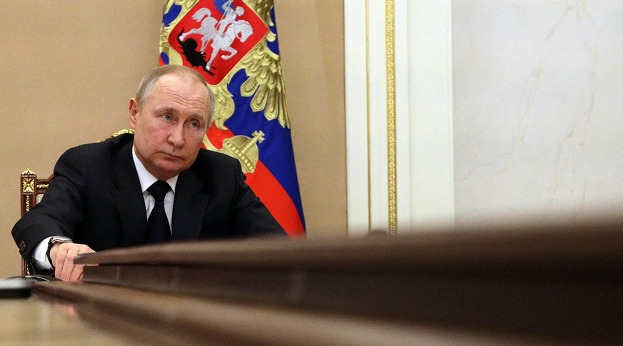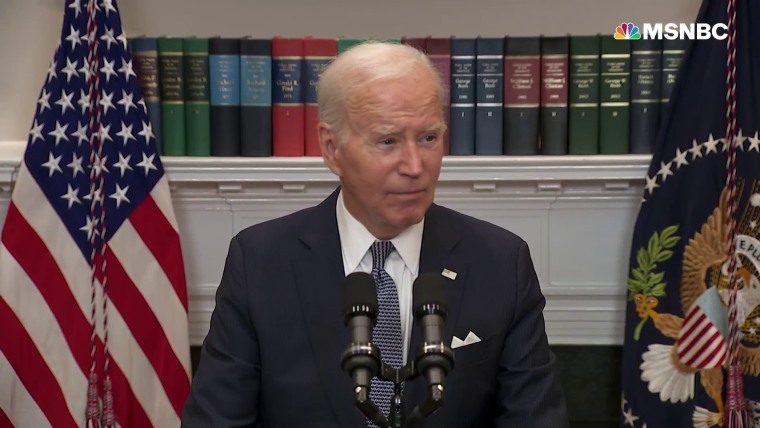The Power of #BlackLivesMatter: A Decade of Social Activism on Twitter
In 2013, a hashtag was born that would change the landscape of social activism forever. #BlackLivesMatter emerged as a powerful tool to ignite conversations about racism, violence, and the criminal justice system. Its impact has been undeniable, with over 44 million tweets and nearly 10 million distinct users contributing to the movement’s ongoing presence on Twitter today.
A Movement Fueled by Tragedy
The use of #BlackLivesMatter has ebbed and flowed over the years, often surging in response to instances of police violence against Black Americans. But no event has been more closely tied to the hashtag than the murder of George Floyd in 2020. Over half of all existing #BlackLivesMatter tweets were posted between May and September of that year, with 6.8 million new users joining the conversation during that five-month period.
A Lasting Impact
While the summer of 2020 marked a peak in #BlackLivesMatter tweets, the hashtag continues to be a powerful force on Twitter. Since October 2020, it has been used in nearly a quarter-million tweets per month. Its endurance is a testament to the ongoing fight for racial justice and equality.
Key Findings of a Decade of #BlackLivesMatter
This analysis of a decade of #BlackLivesMatter on Twitter reveals some important insights:
1. Support for the Movement: A majority of #BlackLivesMatter tweets (72%) express clear support for the movement and its objectives. Only 11% express opposition, while the rest remain neutral.
2. Focus on Policing and Police Violence: One-third of all #BlackLivesMatter tweets over the past decade have centered around policing, victims of police violence, and confrontations between civilians and law enforcement. This focus has remained consistent throughout the movement’s history.
3. Diverse Causes and Hashtags: #BlackLivesMatter has become associated with a wide range of other hashtags and causes. Over 55% of #BlackLivesMatter tweets include additional hashtags, expanding the conversation beyond police violence to encompass various social issues.
4. Lost Historical Records: Unfortunately, a significant portion of the #BlackLivesMatter historical record is no longer accessible on Twitter. Around one-third of tweets from 2013 to 2021, and up to 40% of those from the summer of 2020, have been lost.
Survey Results: Black Lives Matter and Social Media Activism
In addition to analyzing tweets, a survey of 5,101 U.S. adults was conducted to understand Americans’ engagement with Black Lives Matter on social media. The results showed that 77% of social media users have encountered content related to Black Lives Matter, indicating widespread exposure across demographic groups.
The legacy of #BlackLivesMatter on Twitter is a testament to the power of social media in driving social change. It has provided a platform for millions to express their support for racial justice and challenge systemic inequalities. As we reflect on a decade of activism, it is clear that the hashtag’s impact will continue to shape conversations and inspire action for years to come.
[Read more about the use of #BlackLivesMatter on Twitter over the last 10 years](https://www.pewresearch.org/internet/2023/06/29/ten-years-of-blacklivesmatter-on-twitter/)
[Explore Americans’ views of and experiences with activism on social media](https://www.pewresearch.org/internet/2023/06/29/americans-views-of-and-experiences-with-activism-on-social-media/)
[Learn about public views of the Black Lives Matter movement](https://www.pewresearch.org/social-trends/2023/06/14/views-on-the-black-lives-matter-movement/)Americans’ Engagement with Black Lives Matter on Social Media and Views on its Effectiveness
Americans are more likely to see posts related to Black Lives Matter on social media than they are to personally post or share their views on the subject. However, when they do choose to post, they are more likely to show their support rather than opposition.
Support for Black Lives Matter on social media is particularly strong among Black users, with 52% saying they have posted or shared things in support. This percentage drops to about one-in-five among Hispanic, Asian, and White users.
Furthermore, the survey reveals that 7% of Americans overall have attended a Black Lives Matter protest, with that number rising to 15% among Black respondents.
Younger Black people, especially those aged 18 to 49, are particularly vocal supporters of Black Lives Matter on social media, with 61% saying they have posted or shared things in support. This age group also stands out for attending protests, with 17% of Black Americans in this range having participated.
Views on social media and news organizations as tools for bringing attention to police violence against Black people vary. Among those who believe police violence is a problem, 43% see social media as an extremely or very effective way of bringing attention to the issue, compared to 32% for news organizations.
The perception of social media’s effectiveness differs by race, ethnicity, and political attitudes. Half or more of Black, Asian, and Hispanic adults view social media as an extremely or very effective tool, compared to 35% of White adults. Democrats who view police violence as a problem are also more likely than Republicans to see social media as effective in shedding light on the issue.
In contrast, views on news organizations’ ability to bring attention to police violence do not vary significantly by race, ethnicity, or political party.
The survey also highlights the public’s complex views on the impact of social media on political engagement. While many Americans acknowledge its ability to raise awareness and give a voice to underrepresented groups, a majority also believe that social media can be a distraction and make people think they’re making a difference when they’re not.
Overall, four-in-ten social media users find it important for finding like-minded people, while smaller shares place high importance on using social media to get involved with political or social issues or express their political opinions. However, the level of importance users place on these sites for their own political engagement has declined over time.
In conclusion, Americans’ engagement with Black Lives Matter on social media and their views on its effectiveness vary by race, ethnicity, and political attitudes. While social media plays a significant role in raising awareness and mobilizing support, there are also concerns about its impact and effectiveness.New Study Reveals How Social Media Impacts Political Engagement
A recent study conducted by the Pew Research Center has shed light on the role of social media in political engagement. The findings show that while social media remains an important platform for expressing political views and finding like-minded individuals, there are significant differences based on race and ethnicity.
Diverse Perspectives on Social Media Activism
According to the survey, approximately half of Black, Hispanic, and Asian social media users consider these platforms important for connecting with others who share their views on important issues. In contrast, only one-third of White users feel the same way. This pattern is consistent when it comes to getting involved in issues or expressing political beliefs on social media.
Key Survey Findings
The study also explored specific activities that users engage in on social media. The results revealed that certain activities are more common than others among U.S. social media users. Here are the key findings:
1. 34% have participated in a group that shares an interest in an issue or cause.
2. 26% have encouraged others to take action on important issues.
3. 14% have searched for information about rallies or protests in their area.
4. 14% have changed their profile picture to show support for a cause.
5. 12% have used hashtags related to political or social issues.
Overall, 46% of social media users have participated in at least one of these activities. Interestingly, the study found that certain groups, particularly Black individuals, are more likely to use social media for these purposes.
The Impact of Social Media on Political Engagement
This study provides valuable insights into the evolving landscape of social media activism. While the importance of social media for political engagement varies among different racial and ethnic groups, it remains a powerful tool for expressing views and finding like-minded individuals.
To learn more about the impact of social media on political engagement, check out the next article on the ten-year anniversary of #BlackLivesMatter on Twitter.
Source: Pew Research Center
Celebrating a Decade of #BlackLivesMatter: A Powerful Movement’s Impact
In the summer of 2013, three powerful words emerged as a rallying cry against racial injustice and police brutality: Black Lives Matter. What started as a hashtag on social media quickly transformed into a global movement, igniting conversations, protests, and demands for change. As we celebrate a decade of #BlackLivesMatter, it is essential to reflect on the impact this movement has had on society and the ongoing struggle for racial equality.
The roots of #BlackLivesMatter can be traced back to the tragic killing of Trayvon Martin in 2012. His death, along with the acquittal of his killer, George Zimmerman, served as a catalyst for the movement’s birth. Alicia Garza, Patrisse Cullors, and Opal Tometi, three Black activists, came together to create a platform that would amplify the voices of those affected by systemic racism and violence.
Since its inception, #BlackLivesMatter has become a powerful force for change. It has shed light on the deep-seated racial biases that persist in our society, challenging the status quo and demanding justice. The movement has sparked a national conversation about police brutality, racial profiling, and the disproportionate impact of the criminal justice system on Black communities.
One of the movement’s most significant achievements is its ability to mobilize people from all walks of life. #BlackLivesMatter has united individuals, communities, and organizations in the fight against racial injustice. It has provided a platform for marginalized voices to be heard, fostering a sense of solidarity and empowerment. Through protests, demonstrations, and social media campaigns, the movement has brought attention to the urgent need for systemic change.
The impact of #BlackLivesMatter extends far beyond the streets and social media platforms. It has influenced policy changes, sparked important conversations in educational institutions, and inspired cultural shifts. The movement has forced politicians and lawmakers to address issues of racial inequality, leading to reforms in policing practices, criminal justice, and voting rights.
Moreover, #BlackLivesMatter has inspired a new generation of activists and advocates. It has empowered individuals to speak out against racism and discrimination, encouraging them to challenge the status quo and work towards a more equitable society. The movement has provided a blueprint for future social justice movements, demonstrating the power of grassroots organizing and the importance of intersectionality.
However, it is crucial to acknowledge that the fight for racial equality is far from over. While #BlackLivesMatter has achieved significant milestones, systemic racism continues to persist in various forms. The movement’s anniversary serves as a reminder of the work that still needs to be done. It calls upon individuals, communities, and institutions to continue the fight for justice, equality, and the dismantling of oppressive systems.
As we celebrate a decade of #BlackLivesMatter, we must honor the lives lost to racial violence and systemic oppression. We must recognize the resilience and strength of the Black community and the allies who have stood in solidarity. This milestone is not just a celebration; it is a call to action. It is a reminder that the fight for racial equality requires ongoing commitment and collective effort.
In conclusion, #BlackLivesMatter has undeniably made a profound impact over the past decade. It has challenged societal norms, sparked crucial conversations, and inspired change at various levels. As we commemorate this milestone, let us renew our commitment to the fight against racial injustice. Let us continue to amplify marginalized voices, dismantle oppressive systems, and work towards a future where Black lives truly matter.








